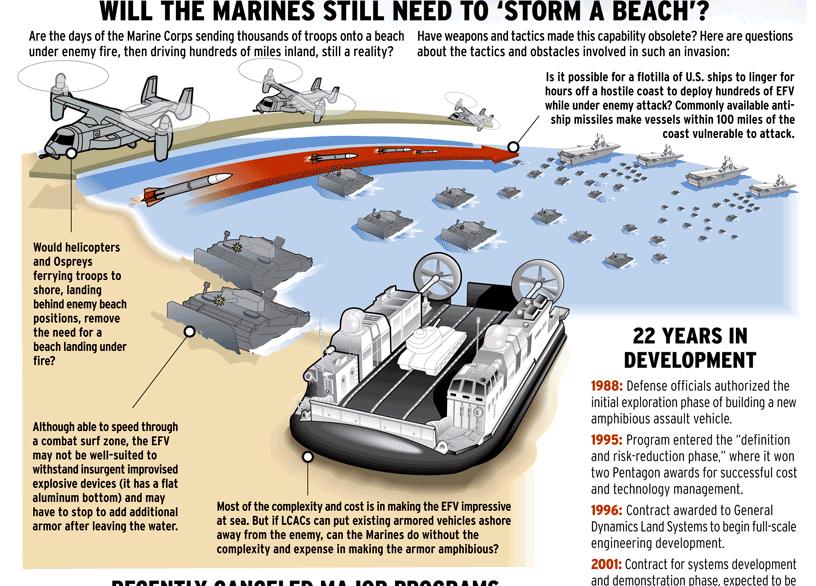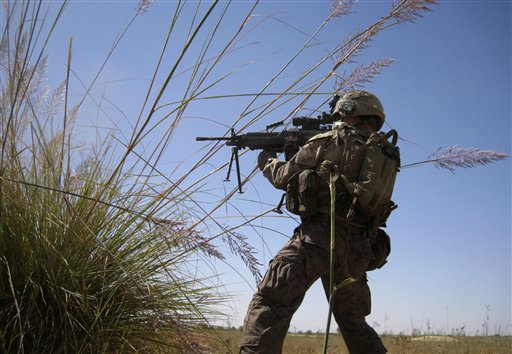There are two examples of what I consider to be odd behavior for our forces in Afghanistan. The first comes from C. J. Chivers, who gives us a mixed report on the Afghan National Army.
… the Pentagon must overcome a persistent problem in the Afghan security forces: attrition. Official estimates put attrition across the force at roughly 3 percent each month. Attrition is a powerful drain that makes growth difficult. Police officers and soldiers simply disappear, even as replacements flow in.
For this reason, for the army to grow by 36,000 more soldiers, the government must recruit and train 83,000 Afghans, according to projections released by NATO. Similarly, for the police to reach the hoped-for increase of 14,000, the government must train 50,000 more officers. This drives up costs to Westerners paying the bill.
The training mission in Afghanistan also labors under a legacy of unfulfilled past promises, inadequate training even in basic skills like marksmanship and driving military vehicles, and a pattern of overstating how ready or skilled the forces are.
Early this year, the Pentagon and senior Afghan and American officers in Kabul insisted that the complex operation to re-establish a government presence in Marja, a Taliban stronghold, was “Afghan led.”
It was not. And many Afghan units, by the accounts of many Americans present, performed poorly. Some units openly shirked combat duty — refusing to patrol, or sending a bare minimum of soldiers on American patrols, sometimes only a pair of soldiers to accompany an American platoon. The remaining Afghans stayed behind, lounging in the relative safety of outposts the Americans secured.
In the operations under way in Kandahar, reports continue to indicate that American forces are almost always in the lead.
This is backwards from the way I would have implemented the garrisoning and training of the ANA. Catching the ANA willingly refuse the go on patrol, get high on hashish, or sit in the safety of a FOB while one of their own goes outside the wire is reason for dismissal. It’s a good thing. Furthermore, the vetting and recruiting of ANA should be stricter and more involved. We should be striving for a smaller force, not a larger one. A smaller force where the Soldiers are well trained, more reliable and more mature should be the goal, not large numbers to put down on paper.
MARJAH, Afghanistan – As the Marines run across a main road, there are no men on mopeds or children hanging out in crowds.
“There is no one is outside today,” says Sgt. Michael Brattole, squad leader, several times as he passes through wadis and fields.
“Is that good or bad?” I ask, already knowing the answer.
The Taliban rarely fire when the streets are busy with people. After three months in Marjah and three casualties in their company, the Marines from Echo Company are all too familiar with the nature of warfare.
The mission is to confirm the location of Akhmed Shah’s home. Shah, an elder, could be the key player in securing the area called the Qasaab Block, located outside of Echo Company’s base.
The section of land the Marines are maneuvering is populated predominately by the Alokzi tribe. Shah’s father stood as the leader for the tribe, but war and the Taliban has created a people without a leader.
Shah’s oldest brother is the rightful tribal leader of the Alokzi, but he chooses to live in Lashker Gah, located about 10 miles away. The Marines would like to help Shah stand as a leader – but first they have to find his house.
This task seems simple enough, but simple tasks in Afghanistan can be deceiving.
The Marines start their search with the first elder they come across on their patrol. His beard is white with shades of blackened gray. In the shadows in one of the dark rooms inside his compound, he holds a mound of cotton and speaks with the Marines.
Outside, security is provided from the 3rd Squad, 2nd Platoon. Inside, one Marine who wishes to remain anonymous, asks the questions.
“We do support Akhmed Shah, he is my nephew. Why not help him?” Haji Torjan says. “Everyone supports Akhmed Shah.”
When the Marines asks if Torjan will send one of his boys with the squad to point out Shah’s home, the elder refuses.
“There are no men, just women and children, in our culture it will be bad,” says Torjan.
There are several more exchanges between the Marine and the Afghan. The Marines try to get the elder to point to the house on a map, or just walk outside ahead of the Marines or at least describe the surrounding area, but the man is of no help.
“If you find it by yourself that’s fine, but I can’t help you,” says Torjan.
“We need your help, to help you,” says Brattole, stepping in for a moment to warn the Marine that the more time they stay in one spot the more time the Taliban has to set up an ambush.
The Marines try a few more tactics with the elder, explaining that if he doesn’t show them they will have to go around asking for Shah’s home, alerting the whole block they are working together.
“You can detain me, take me anywhere you want, but I won’t show you where he lives,” says Torjan.
The Marines are forced to head back out into the other compounds and see if they can get more information from other Afghans. They stay off the road, where they are most likely to get shot at by Taliban.
In order to take the back roads, they must climb over a series of tall and crumbling walls with heavy guns and packs.
The Afghans willing to talk to the Marines have similar answers. Either they have never heard of Shah, or they know who he is and where he lives but refuse to point out the house.
Instead they say, it’s very far away. A few young men suggest the Marines head up farther on the road and surely someone will point out the house.
“If you won’t show me, why would anyone else show me?” asks the Marine. The Afghans smile and nod their heads, as if to say they can’t help him any further.
When children trail the patrol, a Marine pulls aside one of children and asks him about the block’s elder and where he lives. The small boy laughs, chewing on a plastic yellow toy, and shakes his head.
As the Marines push forward, they encounter more locals along the way – and ask the same questions, again.
“We’re just farmers, we don’t know anything,” says a local man. “We have to go back to work.”
Minutes later the same man is across the field bathing in a pump from a nearby well.
Some of the locals give descriptions of Shah’s home: it’s by a canal, near a mosque with speakers over the two-story building, and it’s very far away. The Marines follow the breadcrumbs of information climbing over more walls, questioning more men and children.
After three hours outside the wire, Marines receive a tip that the Taliban is setting up an ambush in the very direction the patrol is headed. Brattole and a few other Marines head farther up the road to inspect the news as the rest of the squad hangs back listening for the sound of gunfire.
After 30 minutes, it’s getting late in the day and the Marines decide to return to the base – without locating Shah’s home. Climbing over the same walls and fields, another long day is over. Sweat covers the brow of the men, and they walk with few words.
After passing a compound, shots are fired from the north. The Marines turn and run towards the gunfire, over the wall, alongside a wadi and towards the main road. By the time they make their way back to their last position, the gunfire has ended. The Marines question four young Afghan men who matched the identities of those firing weapons during the firefight.
The young men want to know what the Marines want with them.
“You were just running away from a firefight,” says the Marine. “”How do I know you weren’t the ones firing?”
“Ask the owner of this compound, when the firefight started we were with them,” says one of the young Afghan men.
Without further evidence the Marines can’t hold the men.
The firefight has ended, the sun is setting deeper into the landscape and the patrol returns to the base.
This effort is misplaced. It would have been more effective to kill insurgents, make their presence known, meet villagers, find weapons caches, question young men, and interrogate prisoners (or potential prisoners). They have given no reason for this tribal leader to ally himself with the Marines. The Marines haven’t yet shown that they are there to win. When the Marines get the Taliban on the defensive, the tribal leader will more than likely come to the Marines rather than the Marine searching him out.
The next patrol should focus on those fighters who were setting up the ambush. Send a few Scout Snipers that direction. Flank the insurgents with a squad or fire team, and approach the area where these men are supposed to be doing their nefarious deeds. Find them, kill them. Do this enough and the Marines won’t have to search out the leaders. Then it will be time to sit down and drink tea. This is the recipe for success.
We needn’t do things backwards. It only lengthens the campaign and makes it costlier.





